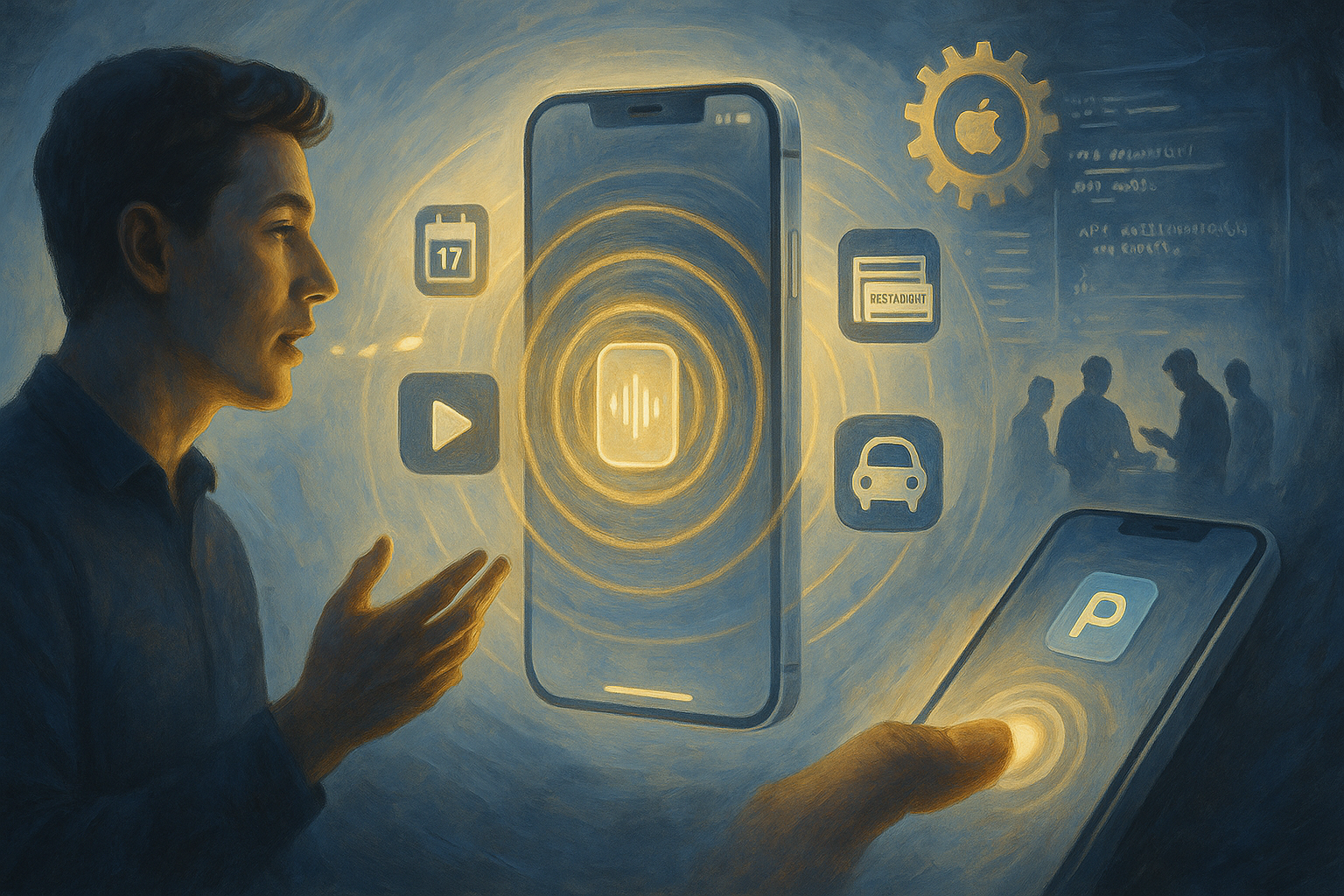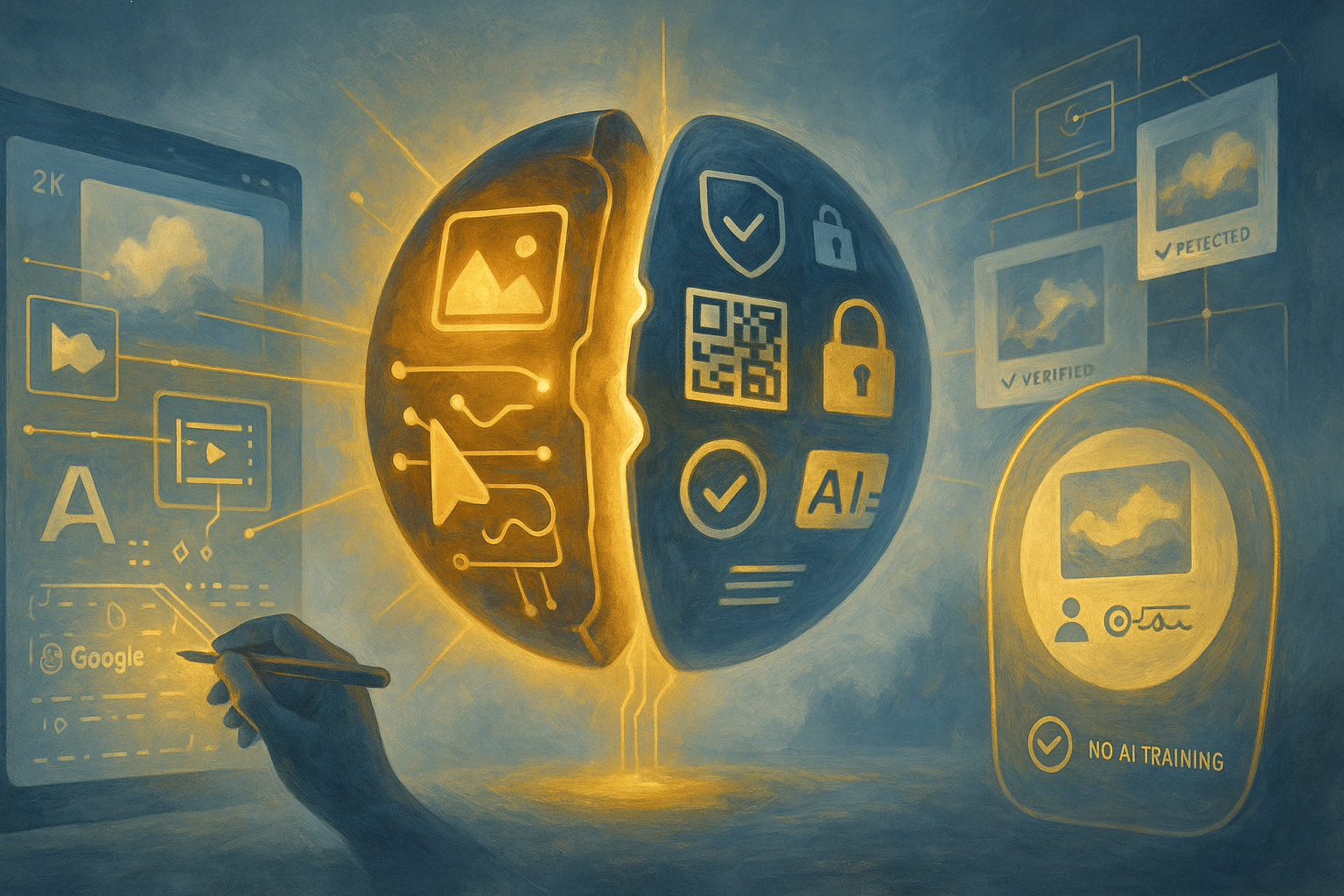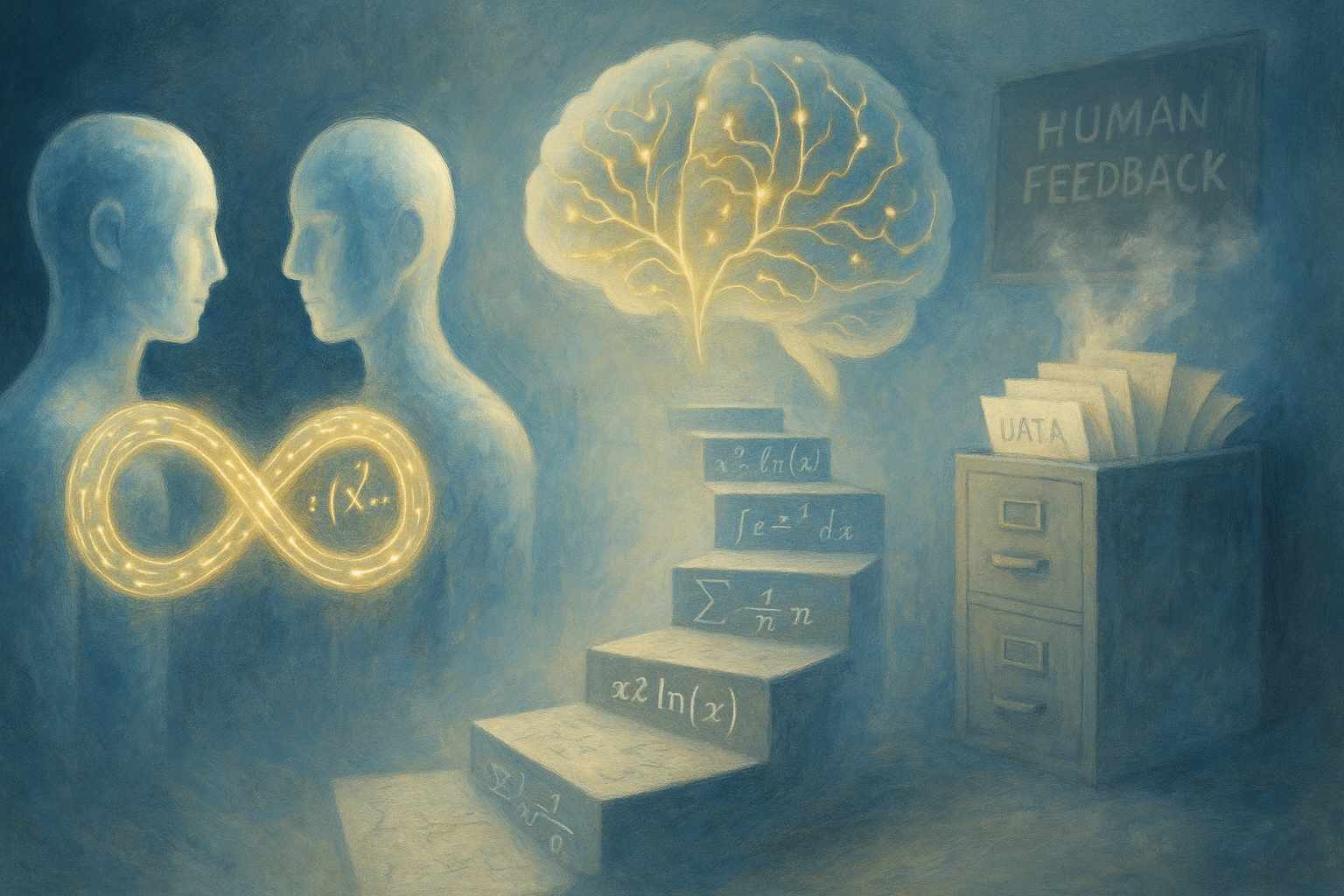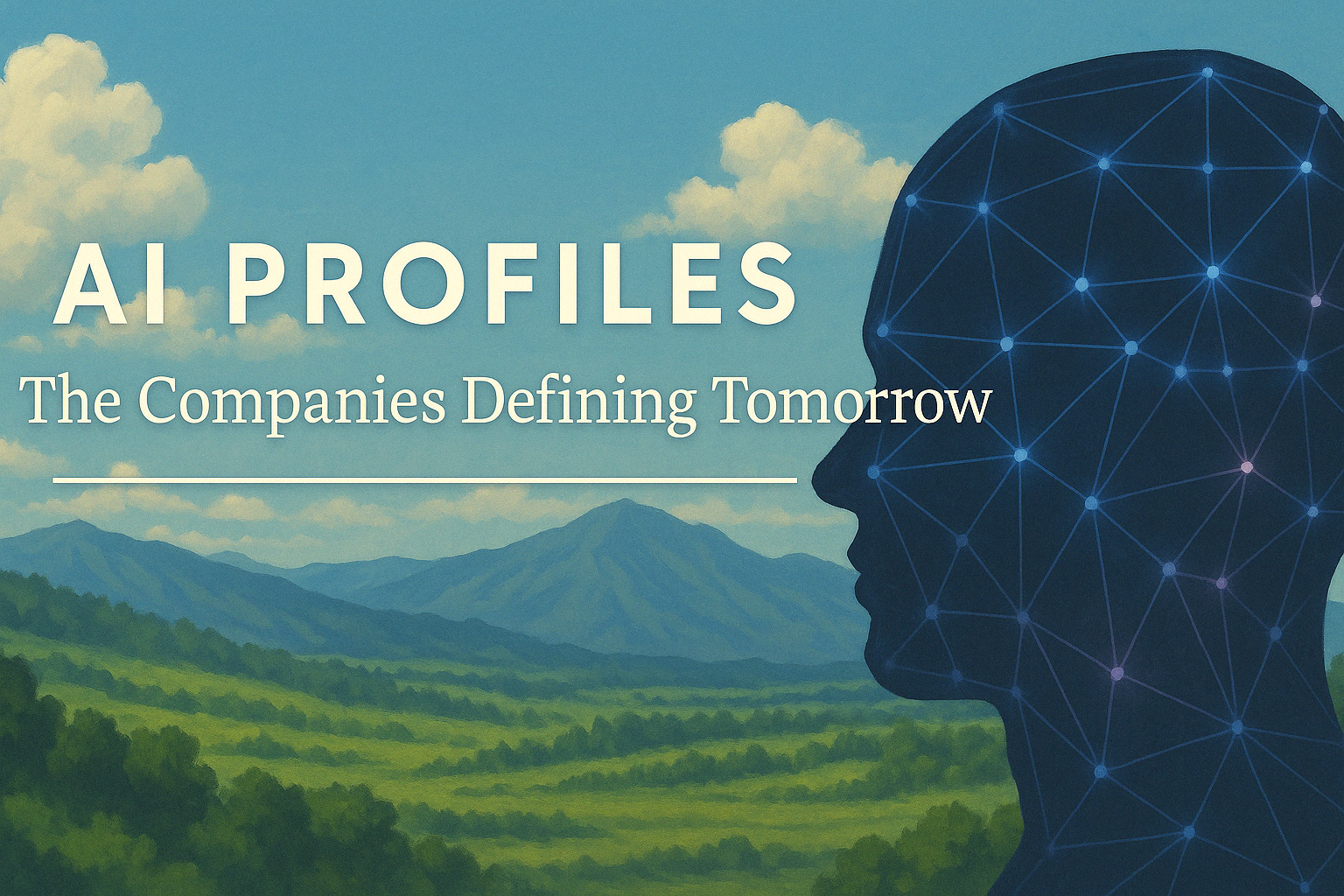Adobe Launches Digital Fingerprint System for Creatives
Adobe just made life harder for content thieves. Their new Content Authenticity web app lets creators embed invisible, tamper-resistant metadata into their work.

Good Morning from San Francisco,
While Apple keeps polishing its promises, Perplexity just crashed the voice AI party 🎭. Their revamped iPhone app now handles tasks that once belonged to Siri's kingdom - from booking tables to managing calendars 📱.
CEO Aravind Srinivas didn't just talk. He delivered ⚡️. Their new assistant taps OpenAI, Google, and Anthropic's muscle to outshine Siri's basic skills. It even runs smoothly on older iPhones 🔥.
Sure, you can't wake your phone with "Hey Perplexity" yet. But this upstart just showed Apple how real voice AI gets done. 💪
Stay curious,
Marcus Schuler

Perplexity just rolled out a voice assistant that runs circles around Siri. Their updated iPhone app lets you set reminders, draft emails, and book restaurant tables - all by voice, all without waiting for Apple's long-promised AI upgrades.
CEO Aravind Srinivas teased this last week on social media. Seven days later, they delivered. The app now handles tasks that used to be Siri's exclusive domain: setting reminders, playing podcasts, and managing your calendar.
Here's the catch: Apple still won't let any other assistant fully replace Siri. You can't wake your iPhone with "Hey Perplexity" when it's locked. But what Perplexity has built runs circles around Siri's capabilities.
The app taps into powerful AI models from OpenAI, Google, and Anthropic. It works on older iPhones too - no fancy new hardware required. While screen sharing remains Android-only for now, the iOS version packs enough punch to make Siri nervous.
Why this matters:
Read on, my dear:

Prompt:
A hyperrealistic 3D image of a human and AI interacting in a decision-making process, highlighting the balance between data and human judgment, glowing data streams intertwining with thoughtful expressions, warm and cool tones, symbolic textures

Adobe just rolled out major updates to protect creators and boost its AI capabilities. The company launched Firefly Image Model 4 for better AI art, plus a new tool that helps artists protect their work across the web.
The upgraded Firefly can now generate sharper 2K images with better text rendering. A beefed-up Ultra version handles complex scenes with fine details. Adobe also opened its video generation tool to everyone, offering 1080p clips from text prompts. A new vector model creates editable artwork for logos and packaging.
All these tools live in a redesigned web app that includes rival models from OpenAI and Google. But Adobe isn't just pushing AI creation - they're also protecting human artists. Their new Content Authenticity app embeds invisible, tamper-resistant metadata into images, helping creators maintain credit even when their work spreads through screenshots.
The authentication system links to creators' social profiles and tracks editing history. It can even mark images as off-limits for AI training. While LinkedIn verification adds security, the system works with any image, not just those made in Adobe apps.
Why this matters:
Read on, my dear:
Google's Gemini has amassed 350 million monthly active users globally - a feat that would be more impressive if ChatGPT wasn't lounging comfortably ahead with 600 million users. While Gemini's daily active users shot up from 9 million to 35 million between October and March, Google's AI assistant finds itself in an unusual position: being the underdog in a race where even Meta's AI tools are outpacing it.
OpenAI is developing its first open-source language model since GPT-2, aiming for a summer release that will run on consumer hardware. VP Aidan Clark leads the project, which promises fewer restrictions than rivals like Llama and Gemma - marking a significant shift for a company that usually keeps its technology under lock and key.
Former President Trump will host a dinner with the 220 largest holders of Trump-themed cryptocurrency at his golf club near Washington on May 22. The event includes special perks for the top 25 holders, who get a pre-dinner reception and White House tour - though one might wonder if buying digital coins is now the hottest ticket in town for political access.
AI language models are accidentally teaching old stereotypes to new cultures, spreading biases like "dumb blonde" jokes to regions where they never existed before. A new study found these models don't just repeat stereotypes - they invent fake scientific research to support them, creating a particularly dangerous cocktail of artificial intelligence and artificial evidence.
Britain's tech watchdog Ofcom has given social media firms until July 25 to block children from harmful content - or risk fines and shutdown. The new rules require age checks on major platforms and demand that algorithms filter dangerous material, marking the UK's most aggressive move yet to make the internet safer for kids.
Trump will sign an executive order Wednesday to boost AI education across America, creating a task force led by tech policy chief Michael Kratsios. The order directs federal agencies to prioritize AI in teacher training and research grants, while pushing for new high school courses and certification programs in artificial intelligence.
Help me organize today's tasks. For each task:
My tasks: [List your tasks here]
Then provide:
Present a feasible daily schedule with realistic buffer times. Highlight potential bottlenecks. Suggest which lower-priority tasks can be dropped if necessary. Include a brief note on how to deal with unexpected interruptions.

AI just learned to grade its own homework. A new training method called TTRL lets AI models improve without human handholding, and the results are turning heads.
The breakthrough comes from researchers at Tsinghua University and Shanghai AI Lab. Their approach? Let AI models form study groups. When multiple versions agree on an answer, they use that consensus as a learning signal.
The proof is in the numbers. An AI model called Qwen2.5-Math-1.5B more than doubled its math test scores, jumping from 33% to 80% accuracy. No human tutoring required.
This flips the script on traditional AI training. Instead of force-feeding models with human-labeled data, TTRL lets them learn through trial and error – much like how we humans figure things out.
But there's a catch. Drop these self-learning models into completely unfamiliar territory, and they stumble. It's like trying to learn calculus before mastering basic arithmetic. The foundation needs to be there.
The implications stretch beyond better math scores. As AI tackles more complex tasks, the old method of human-supervised training becomes increasingly impractical. TTRL offers a workaround that could accelerate AI development across the board.
Why this matters:
Read on, my dear:

Founded in 2021 by ex-Google AI luminaries David Luan, Niki Parmar, and Ashish Vaswani, Adept AI is building AI agents that execute real-world tasks across software interfaces. Based in San Francisco, the company grew to about 25 employees by 2023 with a mission to create AI that acts rather than just chats.
The founders 🧠 Founded 2021 by David Luan (ex-OpenAI VP), Niki Parmar and Ashish Vaswani (Transformer architecture co-inventors). They left Google, convinced recent breakthroughs opened doors to general-purpose AI. Their San Francisco startup assembled nine experts from Google, DeepMind and OpenAI.
The product 💻 Action Transformer (ACT) models observe screen pixels and execute commands across multiple applications. They handle tasks like form-filling, data extraction, and scheduling through natural language requests. The system learns by watching humans complete workflows, acts like supercharged RPA, and works with existing software stacks.
The competition 🥊 Faces startup rivals like Lindy and heavyweight competition from Microsoft, Google and Amazon. Big Tech's already integrating AI assistants into office suites. Amazon hired away Adept's founding team in 2024, licensing their tech for $650M. Traditional RPA vendors like UiPath also feel the heat.
Financing 💰 Raised $65M Series A (2022) led by Greylock and Root Ventures with angels including Uber's CEO. Followed by massive $350M Series B (2023) from General Catalyst, Spark Capital, Microsoft and Nvidia. Hit $1B valuation with just 25 employees. Total funding: $415M before Amazon licensing deal.
The future ⭐⭐⭐⭐ Adept shifted strategy after Amazon hired its founders. The licensing deal made investors whole while letting Adept keep its independence. Now focused on enterprise workflow solutions instead of competing in the model arms race. Their core vision—AI that does rather than says—remains vital, with real-world applications just emerging. 🚀
Fuel your morning with AI insights. Lands in your inbox 6 a.m. PST daily. Grab it free now! 🚀